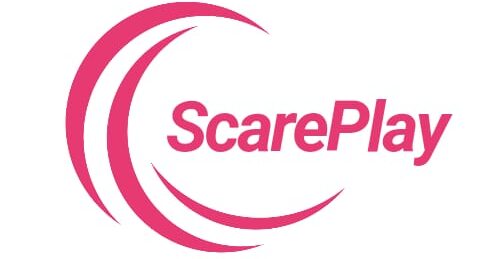In the age of social media and internet slang, new terms and phrases emerge almost daily, leaving many people curious about their meanings. One such term that has recently gained attention is “gyatt.” If you’ve come across this word and wondered, “What does gyatt mean?” you’re not alone. This article will delve into the meaning, origin, and usage of the term “gyatt,” offering insights into how it has become a part of modern online vocabulary.
Understanding the Meaning of Gyatt
So, what does “gyatt” mean? The term “gyatt” is a slang expression that has been used primarily on social media platforms like TikTok and Twitter. It is often used to express surprise, admiration, or excitement, typically in response to something impressive or unexpected. The word itself is a stylized version of “God damn” or “Got damn,” shortened and altered to create a unique slang term.
How Is Gyatt Used?
“Gyatt” is often used as an exclamation in conversations, especially in response to something visually striking or surprising. For example, someone might use “gyatt” in a comment on a social media post featuring an impressive photo, video, or achievement. The term is typically used in a playful or humorous context, emphasizing the speaker’s reaction to whatever they are seeing or experiencing.
Variations of the Term
While “gyatt” is the most common form of the term, you might also encounter variations like “gyat” or “gyattd.” These variations are used interchangeably and carry the same meaning. The slight differences in spelling and pronunciation are often just a matter of personal preference or style.
The Origin of Gyatt
The exact origin of the term “gyatt” is somewhat unclear, but it is believed to have emerged from African American Vernacular English (AAVE), where expressions like “God damn” or “Got damn” are often used as emphatic exclamations. Over time, the phrase was shortened and stylized into “gyatt,” gaining popularity in online communities.
Rise in Popularity
“Gyatt” gained traction on platforms like TikTok and Twitter, where it became a popular way for users to react to content. The term’s catchy and distinctive sound helped it spread quickly, with users adopting it as part of their regular online vocabulary. Memes, videos, and comments featuring “gyatt” have contributed to its widespread use, particularly among younger internet users.
Influence of Social Media
Social media has played a significant role in the popularization of “gyatt.” As with many other slang terms, the rapid sharing of content and the viral nature of platforms like TikTok allowed “gyatt” to reach a large audience in a short period. The term’s popularity reflects the broader trend of how language evolves in the digital age, with new words and phrases emerging from online interactions.
Cultural Significance of Gyatt
While “gyatt” may seem like just another internet slang term, it also highlights the way language is shaped by cultural and social influences. The term’s roots in AAVE and its adoption by a broader audience illustrate how cultural expressions can cross boundaries and become mainstream.
Connection to AAVE
“Gyatt” is an example of how elements of AAVE have been incorporated into mainstream internet slang. AAVE has historically influenced many aspects of American culture, including music, fashion, and language. The use of “gyatt” by a diverse group of internet users reflects the ongoing impact of AAVE on popular culture.
Slang in the Digital Age
The rise of “gyatt” also underscores the role of the internet in shaping modern language. Slang terms like “gyatt” often start within specific communities before spreading to a wider audience through social media. This process of linguistic evolution is accelerated by the digital age, where trends can emerge and gain popularity almost overnight.
The Impact of Gyatt on Online Communication
As with many slang terms, “gyatt” has become more than just a word—it’s a way for people to connect and express themselves online. The term’s widespread use demonstrates how language can create a sense of community among users who share similar cultural references and communication styles.
Building Online Communities
The use of “gyatt” and similar slang terms helps build online communities by creating a shared language that members can use to interact with each other. Whether in comments, tweets, or video captions, “gyatt” serves as a shorthand for expressing emotions and reactions in a way that others within the community can easily understand.
Influence on Internet Culture
“Gyatt” is now a part of internet culture, influencing how people communicate and engage with content online. As more users adopt the term, it becomes a recognizable part of the digital lexicon, shaping the way people express themselves in the online world. The term’s impact on internet culture is a testament to the dynamic and ever-changing nature of language in the digital age.
Misunderstandings and Misinterpretations
As with any slang term, there can be misunderstandings or misinterpretations of “gyatt.” Some users might not be familiar with the term’s meaning or origins, leading to confusion about its usage. It’s important to understand the context in which “gyatt” is used to avoid any potential misunderstandings.
Clarifying the Meaning
If you’re unsure about what “gyatt” means or how to use it, it’s always a good idea to look at examples of the term in use. Observing how others incorporate “gyatt” into their conversations can provide valuable insights into its meaning and appropriate usage. Remember that slang terms can evolve over time, so staying informed about current trends is essential.
Respecting Cultural Origins
When using slang terms like “gyatt,” it’s also important to be mindful of their cultural origins. Understanding the background and significance of these terms can help ensure that they are used respectfully and appropriately. This awareness is particularly important when using slang that has roots in specific cultural or linguistic communities.
Conclusion
So, what does “gyatt” mean? In short, “gyatt” is a slang term that has gained popularity on social media as an expression of surprise, admiration, or excitement. Its origins in AAVE and its rise to prominence on platforms like TikTok and Twitter reflect the dynamic nature of language in the digital age. As “gyatt” continues to be used and evolve, it serves as a reminder of how language can connect people, shape culture, and reflect the ever-changing landscape of online communication.



